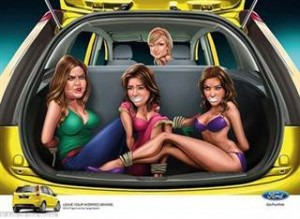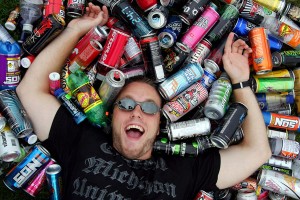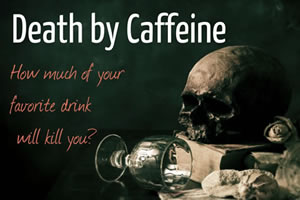From the “Recommended Reading” on the course blog, I found a ads from Ford. If you’ve been under a rock, violence against women in India has been all over the news since last December following the horrific gang rape of a young woman who had the audacity to take a bus.
Ford Motor Co. is taking heat for a series of ads it released in India showing caricatures of several celebrities behind the wheel of a Ford car with three women bound and gagged in the cargo bay.
With critics declaring the campaign offensive and misogynistic, Ford and its global ad agency WPP have quickly backtracked, apologizing and admitting the campaign “should never have happened.”
WPP Group said that the posters were “distasteful and contrary to the standard of professionalism and decency within WPP group”.
“These were never intended for paid publication and should never have been created, let alone uploaded to the internet,” the company said.
“This was the result of individuals acting without proper oversight and appropriate actions have been taken within the agency where they work to deal with the situation.”
The advert caused embarrassment at a time when Italy is already embroiled in a diplomatic row with India for over two Italian marines who have been accused of shooting dead two Indian fishermen off the coast of Kerala.
Resources:
http://www.adweek.com/adfreak?page=4
http://www.brandchannel.com/home/post/2013/03/27/Ford-Farley-Apology-032713.aspx


